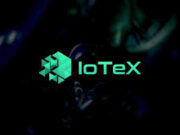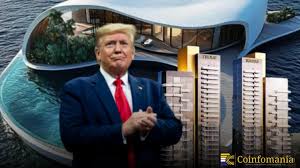In a striking blend of luxury hospitality and cutting‑edge finance, the Trump Organization has announced plans to open its first-ever resort in the Maldives — and it won’t just be a traditional hotel. Partnering with Saudi-linked developer Dar Global, the project aims to pioneer a tokenized real estate model, offering investors fractional ownership through blockchain-based tokens. It’s a bold move that could reshape how high-end tourism projects are funded — while injecting fresh capital into the Maldives at a time when the country is embracing digital assets.
A Palm‑Fringed Vision: Trump International Hotel Maldives
The resort, branded Trump International Hotel Maldives, is slated to feature approximately 80 ultra-luxury villas — both overwater and beach-style — positioned to cater to travelers seeking privacy, exclusivity, and five-star amenities. (PR Newswire) Located just 25 minutes by speedboat from the capital, Malé, the development is expected to open by the end of 2028. (PR Newswire)
Eric Trump, Executive Vice President of the Trump Organization, expressed his enthusiasm for the venture, noting that this collaboration not only builds on the firm’s global brand, but also establishes a “new benchmark for innovation in real estate investment through tokenization.” (PR Newswire) Meanwhile, Ziad El Chaar, CEO of Dar Global, emphasized that this is a global first: tokenizing the development phase itself, not just a completed asset. (PR Newswire)
This is not just another luxury resort; it’s a high-stakes experiment in finance and tourism, wrapped in tropical elegance.
Saudi and Global Backing: Who’s Behind the Deal
The Trump‑Dar Global partnership is key to understanding the deal. Dar Global is the international arm of Dar Al Arkan, a major Saudi real estate developer. (Wikipedia) Dar Global is listed on the London Stock Exchange, giving it access to global capital, and has clearly positioned itself to expand into hospitality. (Wikipedia)
This is not Dar Global’s first collaboration with the Trump Organization: they already have projects in the Middle East, including in Oman and Saudi Arabia itself. The alignment is strategic: the Trump name brings global brand appeal, while Dar Global provides regional know-how and capital.
Tokenization Means Democratizing Real Estate Investment
What makes this deal truly groundbreaking is the tokenization of the project. Rather than requiring huge upfront capital from a few investors, tokenization allows for fractional ownership: tokens on a blockchain represent a share of the development. According to the press release, investors will have the opportunity to participate from the inception of the project, not just after construction. (PR Newswire)
This raises the possibility for smaller or more diverse investors to get exposure to a luxury hospitality development — something that traditionally has been reserved for institutional or ultra-high-net-worth players.
Why the Maldives? A Strategic, Digital-Friendly Destination
The Maldives is perhaps an unexpected but very strategic choice for this type of tokenized hotel development — however, recent developments show the nation is not shying away from blockchain and digital innovation.
In fact, the Maldives government is already pursuing an $8.8 billion blockchain and digital‑assets financial hub. (AInvest) This blockchain hub, backed by a Dubai-based family office representing Qatari royalty, aims to transform the Maldives’ economy beyond tourism and fishing. (Bitcoin News Asia)
The timing could not be more opportune: as the nation seeks to diversify its economic base, a tokenized luxury resort aligns with broader ambitions to position itself as a Web3-friendly investment destination.
Potential Upsides: Innovation, Liquidity, and Growth
There are several reasons why this tokenized resort could be a win-win.
- Access to Capital
By tokenizing the development, Dar Global and The Trump Organization can tap into global investors who otherwise wouldn’t commit to a multi‑million-dollar minimum. Fractional tokens lower the barrier to entry, potentially unlocking capital faster and more broadly. - Improved Liquidity
Real estate is traditionally illiquid: once you invest in a property, exiting can be difficult. Tokenization can make secondary trading of ownership easier, offering better liquidity for stakeholders. - Brand Attraction and Market Differentiation
A Trump-branded resort already carries luxury prestige. Layering in a technical innovation like tokenized ownership could make it stand out even more in the crowded high-end hospitality sector. - Economic Impact for the Maldives
The resort could bring jobs, tourism revenues, and ancillary development. Coupled with the larger blockchain hub, it supports the country’s ambition to diversify and grow.
Don’t Ignore the Trade-Offs
Yet, this is not a silver bullet. There are genuine challenges and risks to navigate.
- Regulatory Uncertainty: Blockchain and tokenization regulations vary widely by jurisdiction. For a project tied to a national resort, regulatory clarity is essential, especially around securities laws.
- Market Risk: Even with tokens, real estate is still exposed to market downturns. Luxury resort demand can ebb and flow, and the high cost of building overwater villas in the Maldives complicates cost models.
- Operational and Execution Risk: Building a resort in the Maldives is not trivial — logistical, environmental, and labor challenges abound. Bringing blockchain investment into that mix adds complexity.
- Volatility and Investor Sophistication: Investors in tokenized real estate must understand both hospitality business fundamentals and blockchain mechanics. There could be a mismatch between crypto speculators and long-term real estate backers.
Comparing With Other Tokenization Moves
This Trump‑Maldives project isn’t happening in a vacuum. Around the world, real estate tokenization is gaining momentum. For instance, in Saudi Arabia, RAFAL Real Estate Development partnered with a U.S.-based blockchain firm to pilot tokenization of property, allowing citizens to co-own premium developments with as little as a few riyals. (Tokenizer.Estate Blog)
Other markets too are exploring tokenization to increase access, improve liquidity, and attract global capital. This makes the Trump‑Maldives project part of a broader, accelerating trend in real-world asset (RWA) tokenization.
Implications for Tourism, Digital Finance, and Geopolitics
From a macro perspective, this development combines multiple converging trends:
- Tourism meets Web3: The Maldives already ranks among the most desirable luxury destinations; tokenizing a resort marries that allure with blockchain investment.
- Digital Finance Strategy: For the Maldives, this is more than just another resort — it’s part of a strategic bet on being a blockchain and digital finance hub.
- Gulf–Maldives Connectivity: The involvement of a Saudi‑linked developer underscores growing Gulf influence in global real estate, especially in tourism hotspots.
In geopolitical terms, such a project could further cement the Maldives’ ties with wealthy Gulf investors, while giving Western luxury brands (like Trump) deeper exposure in the region through novel financial structuring.
The Future
Looking ahead, several developments will be critical to follow:
- Regulation and Compliance: How the regulators in the Maldives, Saudi Arabia, and possibly in other investor countries treat security tokens will be a key determinant.
- Token Design and Infrastructure: Exactly how the tokens are structured (utility vs. security), where they’ll be traded, and how liquidity is provided will shape the investor base.
- Sustainability and Development: Will the resort and the broader development align with environmental sustainability? Given the Maldives’ fragile ecology, building responsibly is essential.
- Adoption and Secondary Market: Interest from retail vs. institutional investors, and how active the secondary market becomes, will reveal whether tokenization truly democratizes real estate or remains a niche innovation.
- Broader Digital Finance Growth: Whether the $8.8B blockchain hub succeeds could amplify or dampen enthusiasm for similar tokenized hospitality ventures in the region.
A Paradigm Shift or a High-Stakes Experiment?
At its heart, the Trump Organization’s move into a tokenized Maldives resort feels like a statement: real estate, hospitality, and blockchain are no longer siloed worlds. By combining luxury tourism with fractional ownership on a blockchain, the project seeks not only to redefine investment in resort real estate, but also to align with larger economic transformations in the Maldives.
Yet, while the vision is compelling, the road ahead will require sophisticated coordination — legal, financial, and operational. Success will depend as much on technology and innovation as on execution and governance.
If pulled off, this could be a model for future hospitality‑finance hybrids. If it falters, it may be seen as a high-ambition gamble. Either way, the Trump Maldives resort is more than a resort — it’s a landmark in the evolving narrative of real estate in the digital age.
Sources:
- DAR Global and The Trump Organization press release. (PR Newswire)
- Maldives’ $8.8 B blockchain hub plan. (AInvest)
- Background on Dar Al Arkan / Dar Global. (Wikipedia)
- Real estate tokenization trends in Saudi Arabia. (Tokenizer.Estate Blog)
- Dar Global / Trump Organization Saudi projects.



























